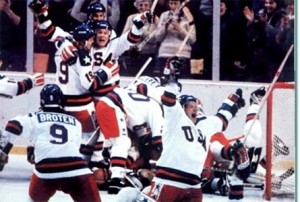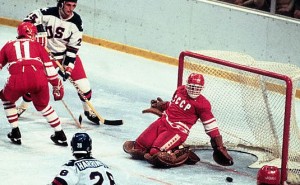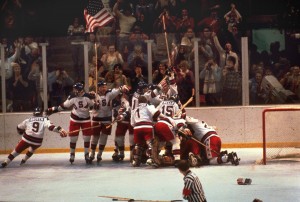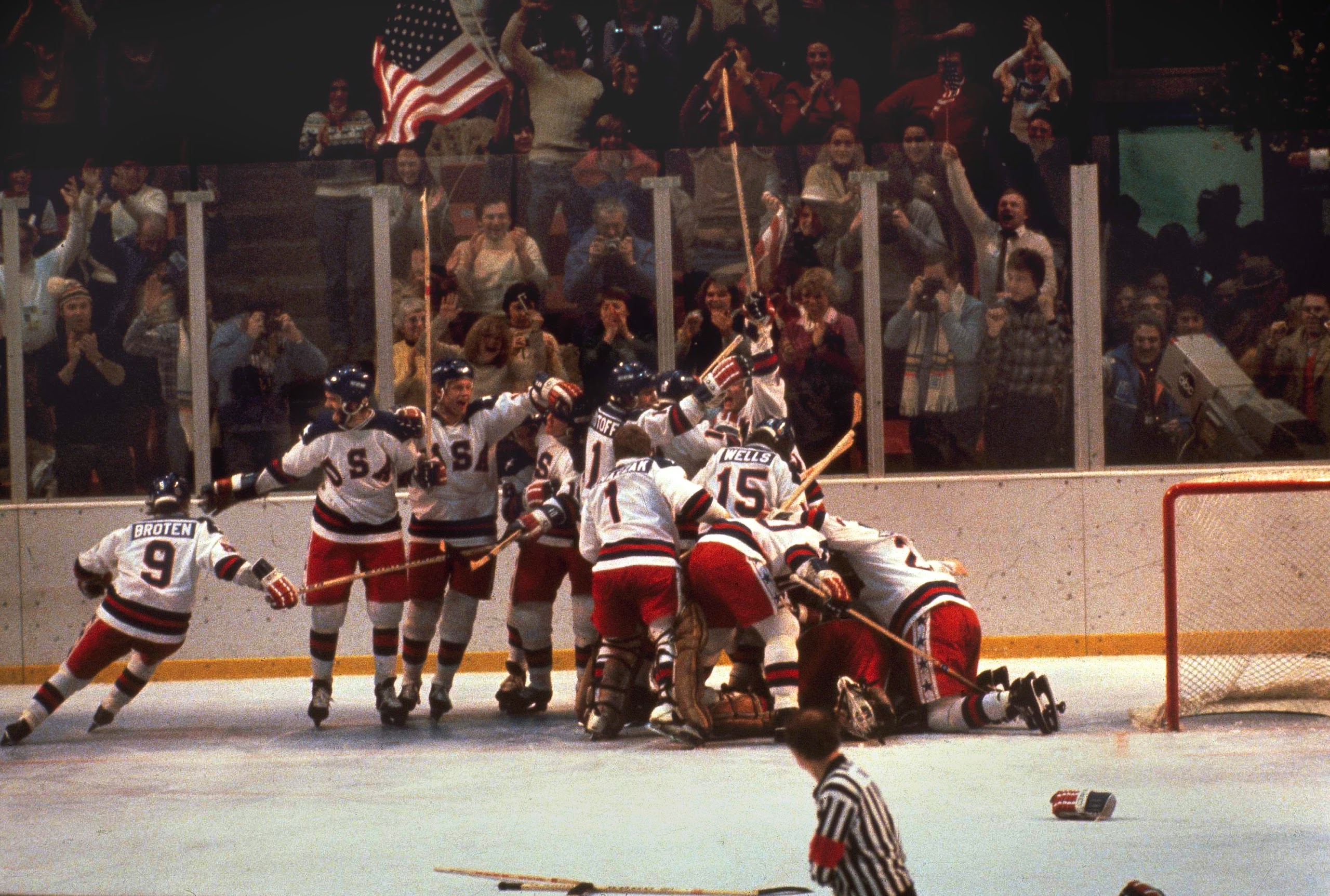Sports News – As the United States hopes to defeat Canada to play for their first hockey gold medal since the 1980 ‘Miracle on Ice.’ David interviews Ken Dryden, who along with Al Michaels, called the now-famous game.
 1. You and Al Michaels called the “Miracle on Ice” game in 1980. Describe the build-up, both in sports and politics, to that game?
1. You and Al Michaels called the “Miracle on Ice” game in 1980. Describe the build-up, both in sports and politics, to that game?
– The build-up was slow. Neither of us (and no one else) expected the US to do better than perhaps contend for a bronze. So any tie (against Sweden), or victory (against Czechoslovakia) we would see only in that context – certainly not as steps that would see them beating the Soviets. So there was nothing building politically either. You don’t make something political until you think you can win. So the political part didn’t really happen much until the game against the Soviets was over. Even two or three minutes before it was over, given who they are in hockey and who you are, you may start hoping, but you don’t start believing.
2. Will another sports moment ever be able to top that?
– The most honest answer is “yes,” because something always happens in sports – and also because people get older, and there are fewer and fewer people who have first time memories of the event. The Cold War recedes. The notion of “world domination” of one ideology or another becomes harder to understand. In Canada, after we won gold in overtime in Vancouver, some compared it to the 1972 Summit Series, and it had none of the back-story that made the event so special. But to those now under 50, they have almost no memory of 1972; Vancouver was a great victory, at home, in OT, it must be as special. That said, the 1980 win has stayed at the top for a long time.
3. Some have said that even if the U.S. wins the gold medal this year, it won’t be the same as 1980. How do you think it compares?
– It would also be a different kind of victory – in 1980 of the supreme underdog. In 2014, of the country, who from almost nowhere has developed its game, and isn’t a supreme underdog anymore.
4. The NHL hasn’t decided yet whether or not to allow its players to compete in future Olympics. Do you think that’s  a good decision?
a good decision?
– I think it’s all about whether the NHL now believes it can put together its own big international event – a World Cup – that it would control, schedule when it wants, and reap its financial rewards.
5. You’ve said the case for allowing fighting in hockey is “getting weaker and weaker.” Do you think the sport has to change to survive?
– I don’t think this is the moment to talk about this. At some times, it’s an important question. Now it’s a distraction from the really important questions.
6. You spent seven full years as goalie of the Montreal Canadiens. You served as president of the Toronto Maple Leafs for six years and a member of Canadian Parliament for seven years. Which was one was more challenging? Which one was more rewarding?
– I don’t have a non-cliched-sounding answer, but they were all their own test. To win almost all the time, and when that is expected and demanded, is one test. To get a team to start to think of itself as what it should be, and could be – the most important hockey franchise in the world – and to begin competing at the top, is another test. To be the government, and reflect what your country truly is, and begin getting there, is another exciting, important test. When we lost and we became the opposition – not so much.
 7. The Olympics are — at their core — about sport. But they’ve been used as political tools. The USA and Soviets have boycotted Olympics before. Should the Olympics ever be used as means to political ends?
7. The Olympics are — at their core — about sport. But they’ve been used as political tools. The USA and Soviets have boycotted Olympics before. Should the Olympics ever be used as means to political ends?
– The Olympics are always used for political ends, and always will be. What they are most essential for a host city/country is a chance to tell the world for endless hours over more than the weeks of the Games, the story about yourself you want them to know (and that you want your people to know). Beijing understood that; so did London; so has Russia. Vancouver much less. The legacy used to be about facilities. Now the legacy is the impression left and how that can be translated into future political and economic gain.
8. You write in your book, The Game that after a team wins enough, “the purpose of winning becomes less to win, and more not to lose.” How do you think this impacts Canada (the winner of the gold in 2010) ahead of their semifinal game against the U.S. Friday?
– Not at all. Canada hasn’t won the Olympics often enough in the last decades to develop a complacency. There will be some of the “more not to lose” because the game is against the US.
9. As a former member of Canadian Parliament – what’s your take on the Keystone Pipeline and whether or not it should be approved in the U.S.?
– I don’t know enough about it to give a public opinion. No one needs to hear another semi-informed opinion.
10. Do my Caps have a shot at winning the Stanley Cup this year? If not, who?
– Oh boy . . . I would think the Caps will have less of a chance of winning than they did before the Olympics because Ovechkin will be so disappointed, and also have to answer again and again questions about why he can’t win the big one.
BY DAVID GREGORY, nbcnews.com

